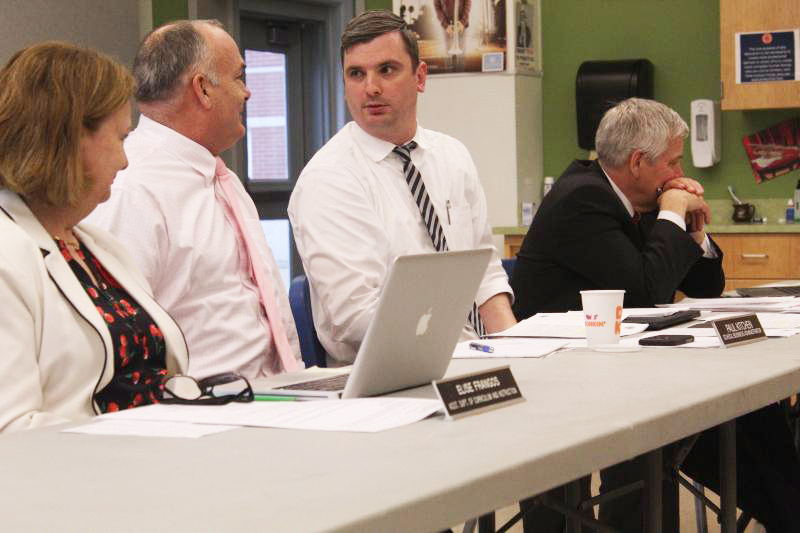Rochester School Committee plans for learning disabilities

ROCHESTER — Before fall 2018 Rochester Memorial School staff could only use the term “specific learning disability in reading” rather than dyslexia, dysgraphia, and dyscalculia when talking about students exhibiting those characteristics.
Dyslexia is a learning disability involving difficulty in reading and understanding words, letters and symbols, while dysgraphia is the difficulty in writing and dyscalculia is an issue with understanding concepts related to numbers.
Last October, Governor Baker approved an act that would allow schools, and the Department of Elementary and Secondary Education, to develop guidelines to screen students for those three disabilities and allow schools to use the terminology when talking about those students.
Rochester Memorial School does not know what the state recommendations will be, but is currently preparing for when they receive those guidelines.
Rochester Memorial School Principal, Derek J. Medeiros, said the school is looking into screening tools such as the Shaywitz Dyslexia Screen, and other resources for students, parents and teachers.
Director of Old Rochester Regional Student Services, Michael S. Nelson, said he is happy to be able to openly address these disabilities.
“I’m excited, it essentially allows us to have these conversations with both parents and guardians, in terms of talking about a very serious issue, which is reading for some of our youngest learners and making sure we’re doing everything we can to intervene and help keep students as close to their grade level ... as possible,” said Nelson.
In many cases, parents would hear the more exact medical terminology from doctors, but were not allowed to use that terminology.
Superintendent of Schools, Douglas White, said he met with school committee members, administrators and staff from Rochester Memorial School to talk about reading systems and how to adapt their current reading structure to students with learning disabilities.
“Over the past year, we had many discussions about reading and more importantly about literacy. As we all know, the success of our children are connected to their ability,” said White.
Assistant Superintendent for Curriculum, Instruction, and Assessment, Elise Frangos, said there is hope for people with dyslexia.
With “dyslexic people, there is no shortcoming of big idea thinking,” said Frangos, “Having dyslexia is not going to tamper with their ability to succeed in life.”
Nelson said the screening guidelines will likely be implemented in the 2019-2020 school year.
Parents can check out www.doe.mass.edu/sped/links/dyslexia.html for more resources and information on dyslexia.













